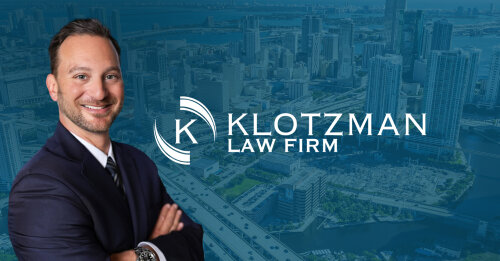Best Motor Vehicle Defect Lawyers in New York City
Share your needs with us, get contacted by law firms.
Free. Takes 2 min.
List of the best lawyers in New York City, United States
About Motor Vehicle Defect Law in New York City, United States
Motor vehicle defect law covers injuries and damages caused by flaws in a vehicle or its components. In New York City, victims may pursue claims against manufacturers, distributors, retailers, and service providers. Types of defects include design defects, manufacturing defects, and failure to warn about known dangers. New York uses product liability principles, often alongside negligence theories, to determine who is at fault and what damages are available. An attorney can help evaluate the defect theory, investigate recalls, and guide you through settlement or litigation.
Because NYC traffic involves dense roads, complex vehicle fleets, and frequent recall campaigns, timely action is important. You may need to show how the defect contributed to the crash or injury and establish the appropriate defendant(s). This guide provides a starting point for residents seeking information and next steps in motor vehicle defect matters in New York City.
The National Highway Traffic Safety Administration maintains a public database of vehicle and equipment recalls, and provides safety information for owners.
https://www.nhtsa.gov/recalls
The New York State Department of Motor Vehicles offers safety resources and recall information for vehicle owners in New York.
https://dmv.ny.gov
The New York State Office of the Attorney General enforces consumer protection laws that relate to defective products and vehicle safety concerns.
https://ag.ny.gov
Why You May Need a Lawyer
In New York City, motor vehicle defect cases can involve multiple parties and complex timelines. Consider these concrete scenarios where legal counsel is essential.
- Active recall by the manufacturer after you buy a car with a defective air bag or braking system that was never repaired, and you are injured in NYC traffic.
- A defective tire causes a multi-vehicle crash in the Bronx or Queens, and the tire maker, the retailer, and the service center each claim responsibility.
- Your NYC taxi or rideshare vehicle suffers a design defect in the brake system, leading to a collision with pedestrians and other motorists.
- You purchased a used vehicle with undisclosed defects that were never disclosed at sale, resulting in a breakdown and an injury within New York City limits.
- A recall notice is issued, but the dealer fails to perform the remedy; you are harmed by the defective component and seek compensation.
- The defect involves a nationwide manufacturer, a distributor, and multiple NYC drivers, creating a complex, multi-party liability case that requires coordinated discovery and expert testimony.
Local Laws Overview
New York City cases about motor vehicle defects touch several vital laws and regulatory frameworks. The following are commonly referenced by lawyers handling these matters.
- Vehicle and Traffic Law (VTL) - The primary state law governing vehicle operation, safety standards, inspections, and recall compliance. It interacts with manufacturer responsibilities and owner duties in defect scenarios.
- General Business Law (GBL) §§ 349-350 - Consumer protection provisions addressing deceptive acts and false advertising related to defective vehicle parts and safety claims. These statutes support claims when a seller or manufacturer misrepresents a product’s safety.
- Civil Practice Law and Rules (CPLR) - Governs how product liability and motor vehicle defect cases are brought, including notice requirements, discovery, and statute of limitations. Local practice often uses CPLR provisions to guide filing timelines and procedures.
Recent trends in New York emphasize robust consumer protection and faster access to recall information, with ongoing emphasis on strict liability theories for automotive defects in courts. For recall-related matters, agencies like the NHTSA and NY state agencies actively publish safety notices and recall data to assist consumers and litigants.
New York courts frequently apply strict products liability principles to automotive defect cases, allowing recovery for design or manufacturing flaws that cause injury.
For reliable recall and safety information, consider official resources from state and federal agencies. See the Additional Resources section for direct links to government sources.
Frequently Asked Questions
What is a motor vehicle defect under New York law?
A motor vehicle defect is a flaw in design, manufacturing, or labeling that makes a vehicle unreasonably dangerous. These defects can cause crashes or injuries even when the vehicle is used as intended.
How do I start a product liability claim for a car defect in NYC?
Start by consulting a New York attorney who handles motor vehicle defect cases. Gather the accident report, medical records, the vehicle’s recall history, and any repair invoices.
When should I file a defect-related lawsuit in New York?
In New York, most personal injury and product liability cases have a three-year statute of limitations from the date of injury. Exceptions can apply for discovery and wrongful death claims.
Where can I check if my vehicle has active recalls?
You can check the recall status on the National Highway Traffic Safety Administration website or the manufacturer’s site using your vehicle identification number (VIN).
Why do I need an attorney for a defective vehicle case?
An attorney helps identify all potential defendants, evaluates the defect theory, preserves evidence, and negotiates settlements or litigates at trial.
Can I sue multiple parties in a defect case?
Yes. You may pursue claims against manufacturers, distributors, dealers, and service centers if each contributed to the defect or failed to warn about it.
Should I talk to the dealer before consulting a lawyer?
It is wise to consult a lawyer first. An attorney can advise you on preserving evidence and how to respond to dealer requests.
Do I need to preserve evidence after a crash caused by a defect?
Yes. Preserve the vehicle, receipts, maintenance records, repair history, and any recall notices or communications about the defect.
Is there a time limit to file a defect claim in New York?
Most cases follow a three-year statute of limitations from injury. Some exceptions apply, so consult an attorney for specifics.
What is the difference between negligence and strict liability in car defect cases?
Negligence requires showing fault in care or maintenance. Strict liability focuses on the defect itself, regardless of fault, for product liability claims.
How much might a motor vehicle defect case cost in NYC?
Many private defect cases are handled on a contingency basis, meaning you pay no fee unless you win or settle. Costs vary by case complexity.
What documents should I gather for my case?
Collect accident reports, police or EMS summaries, medical records, insurance correspondence, purchase and repair records, and any recall notices you received.
Additional Resources
- National Highway Traffic Safety Administration (NHTSA) - U.S. federal agency that maintains the public recalls database and safety information for all motor vehicles and equipment. https://www.nhtsa.gov/recalls
- New York State Department of Motor Vehicles (NY DMV) - State resource for vehicle safety information, recalls, and owner resources within New York. https://dmv.ny.gov
- New York Office of the Attorney General (NYS AG) - Consumer Protection - Agency enforcing consumer protection laws related to product safety and vehicle defects. https://ag.ny.gov
Next Steps
- Identify potential defendants early, including the manufacturer, distributor, retailer, and repair facility. Gather their contact information and any warranties or recall notices.
- Preserve critical evidence by keeping the vehicle, maintenance logs, repair invoices, and notices about recalls in a secure location.
- Consult a New York City motor vehicle defect attorney for a free evaluation within 2 weeks of the injury or discovery of the defect.
- Request a copy of the crash report and medical records to support your injury claim. Obtain authorization for medical providers to share records.
- Determine the applicable theory of liability (design defect, manufacturing defect, or failure to warn) with your attorney and plan the legal strategy.
- Assess potential damages, including medical expenses, lost wages, and pain and suffering, with an attorney who understands New York practice.
- Confirm fee arrangements, typically contingency-based, and sign a formal retainer if you proceed with counsel. Create a communication plan for updates.
Lawzana helps you find the best lawyers and law firms in New York City through a curated and pre-screened list of qualified legal professionals. Our platform offers rankings and detailed profiles of attorneys and law firms, allowing you to compare based on practice areas, including Motor Vehicle Defect, experience, and client feedback.
Each profile includes a description of the firm's areas of practice, client reviews, team members and partners, year of establishment, spoken languages, office locations, contact information, social media presence, and any published articles or resources. Most firms on our platform speak English and are experienced in both local and international legal matters.
Get a quote from top-rated law firms in New York City, United States — quickly, securely, and without unnecessary hassle.
Disclaimer:
The information provided on this page is for general informational purposes only and does not constitute legal advice. While we strive to ensure the accuracy and relevance of the content, legal information may change over time, and interpretations of the law can vary. You should always consult with a qualified legal professional for advice specific to your situation.
We disclaim all liability for actions taken or not taken based on the content of this page. If you believe any information is incorrect or outdated, please contact us, and we will review and update it where appropriate.

















